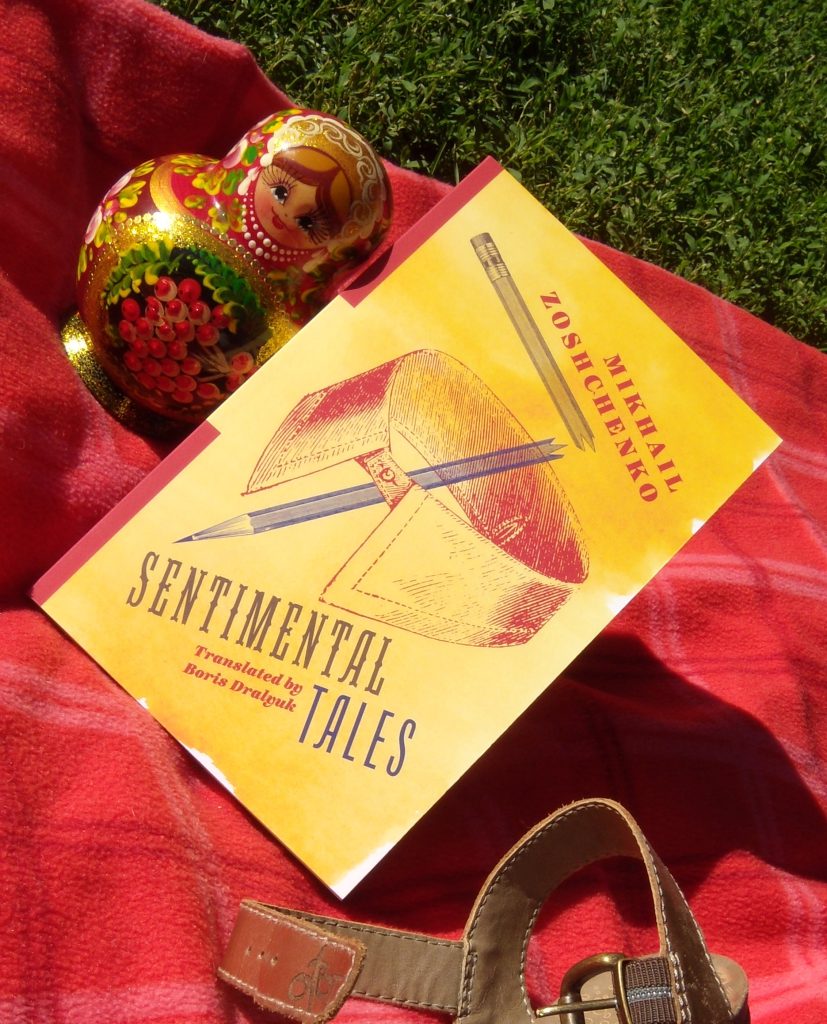Summer Reading Series: Mikhail Zoshchenko’s Sentimental Tales

This week we’re featuring Mikhail Zoshchenko’s Sentimental Tales. Last week, the NYU Jordan Center for the Advanced Study of Russia excerpted the prefaces from the book as part of the Summer Reading Series. Below, is the first excerpt in the series.
Remember to enter our drawing to win a free copy of the book!
• • • • • •
Preface to the First Edition
This book—this collection of sentimental tales—was written at the very height of NEP and revolution.
And so the reader is, of course, entitled to demand certain things of its author: real revolutionary content, grand subject matter, tasks of planetary significance, and heroic pathos—in a word, a full, lofty ideology.
The author would hate to see cash-strapped customers make unnecessary purchases, and so he hastens to announce, with a heavy heart, that this sentimental book contains only negligible amounts of heroism.
Its subject is, quite narrowly, the little man, the fellow in the street, in all his ugly glory.
But don’t go condemning the author for choosing so petty a subject—for it appears he himself is a man of petty character. Can’t be helped. People do the best they can with what they’ve been given.
One writer tosses onto his canvas, with the broadest of strokes, all sorts of episodes, another depicts the revolution, the third martial ritornellos, while the fourth occupies himself with amorous intrigues and challenges. Well, the present author, by virtue of the particular properties of his heart and of his humorous leanings, depicts mankind—how someone lives, what someone does, to what, let’s say, this someone aspires.
The author acknowledges that, in our turbulent time, it is downright shameful, downright embarrassing to put forward such paltry ideas, such humdrum talk about a single insignificant person.
But that’s no reason for critics to get all worked up and roil their precious blood. The author doesn’t aim to slip his book into the list of our era’s most ingenious works.
Perhaps that’s why the author called his book sentimental.
Against the general backdrop of grand scales and ideas, these tales of weak little people, of everyday men and women—this book about miserable, fleeting life—will indeed, one must suppose, sound to certain critics like the shrill strains of some pitiful flute, nothing but offensively sentimental tripe.
Still, that can’t be helped. One must record the situation as it stood in the early years of the revolution. Moreover, we have the temerity to think that these people—this above-mentioned stratum—still run rampant through the world. With that in mind, we bring to your esteemed attention this deficiently heroic book.
But if someone should claim that this opus lacks spirit—well, that just isn’t the case. It has its fair share of spirit. It isn’t excessively spirited, of course—but it has its fair share. The book’s concluding pages simply bubble with absolute gaiety and heartfelt joy.
March 1927
I. V. Kolenkorov





